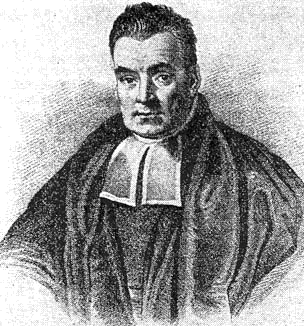Introduction to Bayesian reasoning
- Introduction to Bayesian Reasoning
- Historical Perspective of Bayesian Reasoning
- Understanding Priors
- Implementing Priors
- Advanced Bayesian Inference
- Bayesian Networks
- Bayesian Data Analysis
- Introduction to Bayesian Software
- Handling Complex Bayesian Models
- Bayesian Perspective on Learning
- Case Study: Bayesian Methods in Finance
- Case Study: Bayesian Methods in Healthcare
- Wrap Up & Real World Bayesian Applications
Introduction to Bayesian Reasoning
The Importance and Applications of Bayesian Reasoning in Decision Making

British mathematician and Presbyterian minister (*1701 – †1761).
Bayesian reasoning is a method of thought (named for Thomas Bayes) that essentially allows us to update our prior beliefs based on new evidence. This method is particularly useful in decision making, where we often have to make choices based on incomplete or uncertain information.
The Role of Bayesian Reasoning in Decision Making
In decision making, Bayesian reasoning plays a crucial role in updating our beliefs and predictions based on new data. It allows us to incorporate prior knowledge and experience into our decision-making process. For example, if we are deciding whether to bring an umbrella when going out, we would consider our prior knowledge (e.g., the weather forecast, the current weather outside) and update this belief when new data is available (e.g., seeing dark clouds in the sky).
Bayesian reasoning also helps us to weigh the reliability of new information. If the new information is highly reliable, it will significantly shift our beliefs. If it's less reliable, it will have a smaller impact.
Real-World Applications of Bayesian Reasoning
Bayesian reasoning is not just an abstract concept; it has practical applications in various fields. Here are a few examples:
-
Medical diagnosis: Doctors use Bayesian reasoning when diagnosing patients. They start with a prior belief about the probabilities of various diseases based on the patient's symptoms, and then update these beliefs as more test results become available.
-
Financial markets: Traders and investors use Bayesian reasoning to make investment decisions. They update their beliefs about the future performance of a stock or a market based on new information such as earnings reports or economic indicators.
-
Machine learning: Bayesian reasoning is used in machine learning algorithms to update predictions based on new data. This is particularly useful in areas like spam filtering or fraud detection, where the algorithm needs to continually update its predictions as it encounters new information.
-
Legal judgments: In the legal field, Bayesian reasoning can be used to weigh the strength of evidence. For example, a juror might start with a prior belief about the defendant's guilt or innocence and then update this belief based on the evidence presented during the trial.
The Benefits of Using Bayesian Reasoning in Decision Making
Using Bayesian reasoning in decision making has several benefits:
-
Incorporating prior knowledge: Bayesian reasoning allows us to formally incorporate our prior knowledge and beliefs into our decision-making process.
-
Handling uncertainty: Bayesian reasoning provides a systematic way to deal with uncertainty and make decisions under conditions of uncertainty.
-
Updating beliefs with new data: Bayesian reasoning provides a method for updating our beliefs and predictions based on new data, which is particularly useful in a rapidly changing environment.
In conclusion, Bayesian reasoning is a powerful tool in decision making. It allows us to incorporate prior knowledge, handle uncertainty, and continually update our beliefs and predictions based on new data. Whether we're diagnosing a patient, trading stocks, or deciding whether to bring an umbrella, Bayesian reasoning provides a rational framework for making decisions.